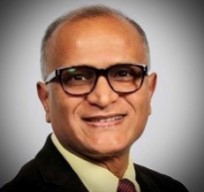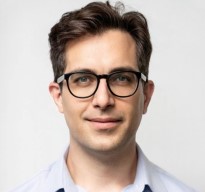Data Analytics for Artificial Lift
Disciplines: Data Science and Engineering Analytics | Production and Operations
Course Description
In this hands-on course, the participants will learn some of the techniques and workflows applied to artificial lift and production while reviewing code and practicing. The focus will be on the development of data-driven models while reviewing the underlying artificial lift principles.
After introducing data science and analytics techniques, the course will discuss some business use cases that are amenable to data-driven workflows. Two or three problems will be presented during the training. For each case there will be a demonstration of the solution of such a problem using a data analysis technique with Python code deployed in the Google-cloud. Then there will be an opportunity to solve the problems and tweak solution variables using a provided data set.
Learning Level
Intermediate
Course Length
1 Day
Why Attend
This course discusses use cases corresponding to artificial lift wells and related production facilities. The course is primarily intended for production and facilities engineers to enhance knowledge base, technology awareness and facility with different data analysis techniques that can be applied on large data sets. After completing the course, participants will have a set of tools and some pathways to analyze and manipulate their own data in the cloud, find trends, and develop data-driven models.
Who Attends
The course is primarily intended for production and facilities engineers to enhance your knowledge base, technology awareness and facility with different data analysis techniques that can be applied on large data sets.
CEUs
0.8 CEUs are awarded for this 1-day course.
Cancellation Policy
All cancellations must be received no later than 14 days prior to the course start date. Cancellations made after the 14-day window will not be refunded. Refunds will not be given due to no show situations.
Training sessions attached to SPE conferences and workshops follow the cancellation policies stated on the event information page. Please check that page for specific cancellation information.
SPE reserves the right to cancel or re-schedule courses at will. Notification of changes will be made as quickly as possible; please keep this in mind when arranging travel, as SPE is not responsible for any fees charged for cancelling or changing travel arrangements.
We reserve the right to substitute course instructors as necessary.
Instructors

Dr. Rajan Chokshi has over 35 years' work-experience in multiphase flow, artificial lift, real-time production optimization and software development/management. His current work is focused on a variety of use cases like failure prediction, virtual flow rate determination, wellhead integrity surveillance, corrosion, equipment maintenance, DTS/DAS interpretation.
Chokshi has worked for national oil companies, majors, independents, and service providers globally. He has multiple patents and SPE papers and has delivered a multitude of industry presentations. He continues to teach for SPE, university, and professional forums. Twice selected as an SPE distinguished lecturer, he also volunteers on SPE committees. He has PhD in Petroleum from the University of Tulsa and master's in chemical from IIT-Kanpur, India.

Dr. Patrick Bangert heads the AI Division at Samsung SDSA. On the side of AI Engineering, he is responsible for Brightics AI Accelerator, a distributed ML training and automated ML product, and AutoLabel, an automatic image data annotation and modeling tool primarily targeted at the medical imaging community. On the side of AI Sciences, he leads the consulting group that makes AI models for customers for many diverse use cases. Among his other responsibilities is to act as a visionary for the future of AI at Samsung.
Before joining Samsung, Patrick spent 15 years as CEO at Algorithmica Technologies, a machine learning software company serving the chemicals and oil and gas industries. Prior to that, he was assistant professor of applied mathematics at Jacobs University in Germany, as well as a researcher at Los Alamos National Laboratory and NASA's Jet Propulsion Laboratory. Patrick obtained his machine learning PhD in mathematics and his Masters in theoretical physics from University College London.
Other courses by these instructors
Dr. Rajan Chokshi
This course will help develop a solid foundation in all forms of lift and the concepts of the selection process to maximize production and return on investment.
Topics:
- Advantages and...
Disciplines: Production and Operations
Dr. Rajan Chokshi
This course is designed to give trainees an overview of various artificial lift solutions and related production optimization concepts. After introducing participants to the need for an artificial lift system, training will focus on each of the follo...
(Read More)Disciplines: Production and Operations
Dr. Rajan Chokshi
For assets having gas-lift as a predominant form of artificial lift, the full field optimization is essential due to the closed-loop nature of the system with significant interdependence amongst reservoir, wellbore and surface installation. This cour...
(Read More)Disciplines: Production and Operations
